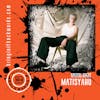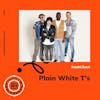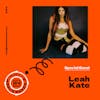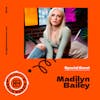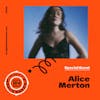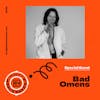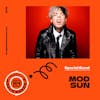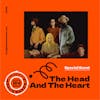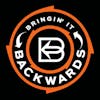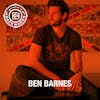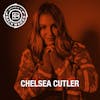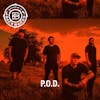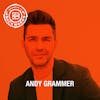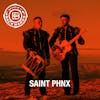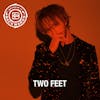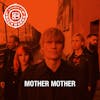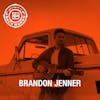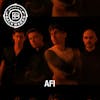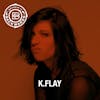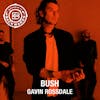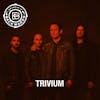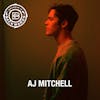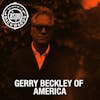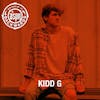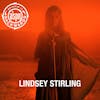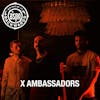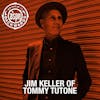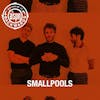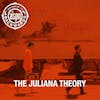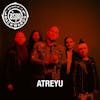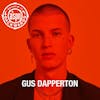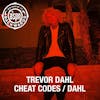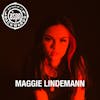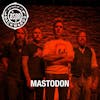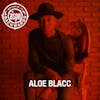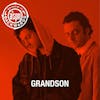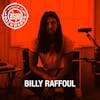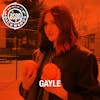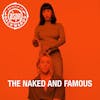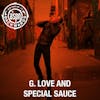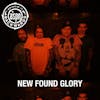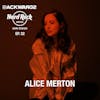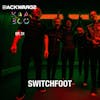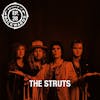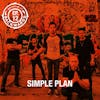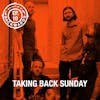Interview with Dida Pelled
We had the pleasure of interviewing Dida Pelled over Zoom video.
Brooklyn-based, Native Tel-Avivian, Dida Pelled, is widely regarded as the greatest jazz guitarist this side of the Mississippi. Pelled’s ambitions took shape as a child, when,...
We had the pleasure of interviewing Dida Pelled over Zoom video.
Brooklyn-based, Native Tel-Avivian, Dida Pelled, is widely regarded as the greatest jazz guitarist this side of the Mississippi. Pelled’s ambitions took shape as a child, when, entranced by bebop, she sequestered herself from the world and resolved to master guitar, later earning a spot in the Israeli Army band before training at the New School on a scholarship to study jazz.
She quickly made a name for herself in the New York jazz scene, recording with Jazz masters like Roy Hargrove and Gregory Hutchinson and touring the world. As her jazz star rose, Pelled felt a pull toward classic American songwriting, shifting her direction and redefining her voice.
Love Of The Tiger, Pelled’s upcoming album, is the product of a jazz prodigy gone rogue. The record was recorded both in isolation at her home and at Eli Crews’ studio in upstate NY, alongside engineer Phil Weinrobe (Adrianne Lanker, Damien Rice), Guy Paz on drums and Andrew Forman on additional guitar. Love Of The Tiger is a love letter to the obscure, weaving across genres, twisting and turning with Pelled’s ever-expanding range of musical abilities and interests.
We want to hear from you! Please email Tera@BringinitBackwards.com.
www.BringinitBackwards.com
#podcast #interview #bringinbackpod #DidaPelled #LoveOfTheTiger #lgbtq #LGBTQ+ #NewMusic #zoom
Listen & Subscribe to BiB
https://www.bringinitbackwards.com/follow/
Follow our podcast on Instagram and Twitter!
https://www.facebook.com/groups/bringinbackpod
We'd love to see you join our BiB Facebook Group.
Hello! It is Adam. Welcome back to bringing it backwards. A podcast where both legendary and rising artists tell their own personal stories of how they achieve stardom. On this episode, we had a chance to hang out with Dida Pelled over zoom video Dita was born and raised in Tel Aviv in Israel, and she talks about how she got into music. She was very interested in fascinated by the guitar around 10 years old, and that's when she was able to convince her parents to get her a guitar. There is a very specific holiday in Israel where the parents all head to the kids' school and they do a bonfire and they eat, and they just have kind of this fun time a while while the kids are at school. 3 (2m 20s): And one of the kids in her class dad played guitar. And so he was kind of the entertainment of this particular celebration. And that's what drew her to guitar at 10. And she started playing became obsessed with it, ended up playing jazz guitar in the army because in Israel you must serve at least two years in the army. If you are a female in three, I believe if you're male. So she went into the army as a guitar player, and that's where she also found her voice for singing Dita talks about getting a full ride scholarship to Berkeley, that she ends up turning down because she wanted to go to the new school. She wanted to live in New York. She applied to the new school, gets a there as well. 3 (3m 0s): So she ends up going there. She talks to us about the first real gig she had, which was at a wine bar. And that led her to meeting a lot of people, networking, eventually recording a first record. She talks to us about the first two albums. She put out both of all jazz standards and then her first record of songs that she had written called modern love songs. And we also talk all about her new record, which is called love of the tiger. You can watch our interview with DDA on her Facebook page and YouTube channel at bringing it backwards. It would be awesome if you subscribe to our channel like us on Facebook and follow us on Instagram, Twitter, and TikTok at bringing back pod. 3 (3m 42s): And if you're listening to this on Spotify, apple music, Google podcasts, it'd be awesome if you follow us there as well and hook us up with a five-star review, 4 (3m 51s): We'd appreciate your support. If you follow and subscribe to our podcasts, wherever you listen to podcasts, 3 (3m 57s): We're bringing it backwards with Dida Pelled 5 (4m 0s): Hey, 3 (4m 1s): I did it. How are you? 5 (4m 3s): How are you? 3 (4m 4s): I'm doing well. I appreciate you doing this 5 (4m 6s): And appreciating having me. 3 (4m 8s): Of course, my name is Adam, and this podcast is about you and your journey in music. And we'll talk about the new record you have coming out as well or a new album, I should say 5 (4m 19s): Both ways. 3 (4m 20s): Amazing. Amazing. Okay. First, were you born and raised in Tel Aviv is in moved to New York or, 5 (4m 29s): And I moved to New York 13 years ago. 3 (4m 33s): Oh, okay, cool. What was it like growing up in Tel Aviv? 5 (4m 37s): It was beautiful. It's actually very different from what it is now. I just came back from a short visit and it felt like the city has changed a lot. 3 (4m 47s): Oh, really? Is that a good thing? 5 (4m 50s): I dunno. I didn't like it. I still love, but it's cool. I mean, it's a small city, but it's very full of life and there's a lot of really good artists and beautiful things coming from Tel Aviv. So I was lucky to be able to like learn a lot because there was really good jazz scene when I was growing up there. And there was a lot of people to look up to and like learn from. So that was really cool. 3 (5m 19s): Yeah. I've, I've interviewed a few artists from Tel Aviv that, and so there's quite a decent music scene from what I gather there. Right. 5 (5m 27s): Israelis are Amanda says 3 (5m 29s): Yeah. 5 (5m 31s): For the small city and like, everyone is so good. 3 (5m 36s): That's so cool. And well, how did you get into music? Where you're is, are your parents musical at all? A brother and sister, 5 (5m 42s): Is there a musician or in a, and they love it, but they're very not like in the arts, but when I was 10 years old, there's a holiday in Israel. That is like, it's, I don't know how to say it in English because I don't think it has a name, lack of the old man. And what we do in this holiday at school is like, we have a little campfire and everyone sits around it and like eat, you know, like potatoes, whatever the thing. And usually someone plays less. So like if there's a father or a mother of someone in class that knows how to play, they play the guitar and everyone sings along. 5 (6m 23s): And I really liked that idea. And I saw a father of someone in my class playing and everyone sang along and I was like really wanting to do that myself. So I told my parents, I must play the guitar like that person. And I convinced them, they were like a little 3 (6m 40s): Hesitant. 5 (6m 42s): And also I had a, my best friend was studying piano and her teacher really wanted me. I thought, I think she probably wanted to have me as her student. She said, I'm too small for the guitar. So I should do piano. And I actually got a small guitar when my parents agreed and I started learning. And the year after I was already there with that father, we were playing together. And I, it was so funny. I have a picture from that and I also dressed like him. 3 (7m 11s): Oh wow. Oh, so the following year you were playing, like playing the holiday. 5 (7m 18s): Oh 3 (7m 18s): My gosh. That's so cool. 5 (7m 20s): That's how I started. I was very motivated to like yellow. I have to play songs already. 3 (7m 25s): Okay. I'm curious about this holiday. So you said it's all day where, what you just get together with family and everybody hangs out around a buck. 5 (7m 33s): Yeah. And you hang out and you eat dry fruit. What else doing about this all day? Very small. One day holiday. 3 (7m 42s): It's just for people in, what do you, what do you say your class? W what do you mean by that? Like, people are going to school. 5 (7m 48s): Cool. Does that kids in class do it? 3 (7m 53s): Oh, that's cool. Okay. It's like a big party at school. 5 (8m 0s): Yeah. It's party outside of school. Cause you make a big fire. 3 (8m 4s): Okay. That's really cool. So that's yeah. That's what drew you into playing guitar. And then when you get this guitar 5 (8m 12s): Dream gig. Yeah. 3 (8m 14s): And so you get this guitar and then are you just obsessed with it? Are you playing it all the time? 24 7. 5 (8m 20s): I mean, I think in those first few years, I was very quick to learn, like to a basic level, but then it wasn't. I had so many things I was doing, I was playing tennis and basketball and I was going to the Scouts and then sing jazz. Like that's how they call dancing class. Yes. 3 (8m 37s): Oh yeah. Jazz. Both of my sons are in dance and one of them still isn't the younger ones. Still isn't fans. Yeah. The jazz dad did. 5 (8m 45s): Yeah. A lot of stuff like that. And guitar was part of it, but I really loved it and I always wanted opportunities to perform. So like, I did do a lot of playing at school and those eight, but it wasn't like still, it took a few years, still like got really nerdy. And like I did only that when I was 15, I went to an arts high school. That's really good. And I don't even know I got into that high school. Like I wasn't, it wasn't so clear that music is like above the other things that I was doing. You know, I told her I did all this stuff, so music, but it wasn't like, it was still that, but I had some intuition that I wanted to go to this special school, the art school. 5 (9m 33s): And I got in 3 (9m 36s): That audition to get in, or 5 (9m 38s): You have to audition. And I passed out. I was like, okay, I'm going to this school 3 (9m 41s): As a guitar player, 5 (9m 43s): As a guitar player. And it's like a jazz program, but I honestly knew nothing about jazz, but they accepted me. 3 (9m 49s): Wow. So they must've seen potential, obviously. I mean, jazz is so hard. I mean, you're incredibly good at guitar, but jazz is like, jazz itself is so technical. And then to be able to go in, as 5 (10m 2s): None of the kids at 15 really knew jazz. Like we knew we going program. So they see like potential. 3 (10m 9s): They're like, okay. 5 (10m 11s): Yeah, let's have these people learn jazz, but like, they know that we're not going to know it before. 3 (10m 17s): Sure. 5 (10m 19s): But they wanted to see dedicated like people that are gonna put their hearts in it. So listen, I dunno how it happened. But like from 15 to 18, I was sucked into the scene at the school of jazz. And I was like, totally doing only that, like, I didn't know anything else that was going on in the world musically or in any way. I only cared about like playing good bebop solos for a few years. Like a dream that I don't remember that time, except of like, it was so important to me to like practice four hours a day, at least. 3 (10m 54s): Wow. 5 (10m 55s): Really the things that made me nervous at the time, weren't like, I don't know social things at high school was like, when we have this class, I want to play the best solo. And like, I wanted to be the best, the jazz guitar randomly. 3 (11m 11s): That's amazing though. Where you writing your own songs at this point, or we're just going to craft, 5 (11m 17s): We're not about writing your own songs at that stage. You just wanted to know how to play jazz. 3 (11m 21s): Okay. And you did that for awhile. You ended up going into the army, right. For Qatar because you have to serve, is that what, from what I understand in Tel Aviv or in Israel, you have to serve in their military. 5 (11m 33s): Yeah. So we all have to go to the army. It's 18, you finish high school and girls go for two years, boys, boys for three years. 3 (11m 42s): Okay. 5 (11m 42s): And yeah, you have, 3 (11m 43s): I have no choice. Right. You just go right in and then how do you decide which path like, I mean to go in and then get to play guitar. That's 5 (11m 52s): Probably a pretty cool. So with this special role that's called, I guess I was translated as outstanding musician. I audition to see if I want to get that position. And I did only like 10 people a year. Get it. 3 (12m 11s): Wow. 5 (12m 13s): Yeah. And then I was an outstanding musician in the army. So basically it means because everyone in Israel are drafted. You don't want, they don't want to lose the arts. Right. So if everyone is 18, will completely stop working on their craft, there will be no Israeli artists. Cause like imagine dancers, musician, everyone stopping, working and practicing. 3 (12m 36s): Yeah. The spent two to three years in the army. Okay. 5 (12m 40s): They want to maintain the arts. So they allow these special spots where people that can still have time to like work on their craft and their career. So I was able to do that. So I still, like, I could still practice and play shows outside of the army, but in the army, I also was playing in a band. And it was actually a really interesting time because it was the first time after these intense few years of like really diving into jazz that I, again got a little perspective and remember that there are other things in the world and I had to, the music we had to play in that army band was music for soldiers who just want some entertainment during like very intense training. 5 (13m 25s): So they obviously don't want to hear jazz once I'm like Israeli pop and rock songs. 3 (13m 33s): Sure. 5 (13m 34s): In the one hour they have in an intense month of training. So we had to provide that. So it made me like connect to the part that loves to do that. You know, play people's songs that have another effect on them and listen to lectural jazz stuff. And it also, I developed them a secret wish to sing it because I was only playing the guitar then. And I realized, wow, I kind of want to sing. 3 (14m 3s): Was there something that like, do you remember that moment? Or was it just like, I love these pop songs we're playing. It would be cool to be able to sing along as well. 5 (14m 12s): I remember that I, I started at the time listening to a lot of music. Like that's not jazz. And I was really like loving songs. And once you start loving songs, you want to sing them. And it was such a cool thing to explore my singing, but it was a big secret. It was like, I couldn't tell people that I'm doing it because I was so I was already at a very good level on the guitar. And I was scared to like start being a mediocre singer. 3 (14m 38s): Oh, 5 (14m 39s): That's a vulnerable thing to, to sing. So I was like, for two years hiding it, it was like coming out of the closet vibes. 3 (14m 46s): Yeah. It is interesting how, I mean, it makes sense in that that singing is such a vulnerable thing, because if you're not good at guitar right away, if you just pick a tarp and start hitting it, it's like, oh yeah. You're, you're not good at guitar, but you'll eventually get good. But with singing, it's like, it's your own voice. So if somebody tells you, you suck, you can't sing. Then you're like, Ooh, ouch. That means my, the sound of my something that I can't even change. Isn't good. Right. You can work for sure. But I mean to take that in as one, you know what I 5 (15m 21s): Mean? 3 (15m 23s): Right, right. 5 (15m 25s): Anyway, so 3 (15m 26s): Yeah. So you decided you want to try to learn singing, but you were playing guitar obviously much better. 5 (15m 32s): Our teacher. And they started like exploring my voice secretly, but it was also still playing jazz gigs as a guitar player, like for other singers and like with my trio group and stuff like that. But I did it slowly, the two classical singers in my army ensemble noticed that I liked to sing and they were really supportive. So like I got one song that was my feature, like a year in or something. And then I started like exploring singing. And I honestly think I moved to New York right after the army. Cause I kind of wanted even more room to like experience these different parts of myself without feeling so shy about it. 5 (16m 16s): But I came here and I presented myself, like I play guitar and I sing and it was a little easier cause people didn't know me already as one thing, you know, kind of like a little easier to change 3 (16m 29s): When you were at, when you're in the army, that's when you presented yourself, like you showed these two other singers or could these classically trained singers that you wanted to sing. And like, 5 (16m 37s): I'm like, yeah. Where I sing a little or something. I show them a song I learned and loved. And they were like, they were really liking my singing. It was like very 3 (16m 46s): Wow. What's that you must've been pretty nervous to show somebody. Right? I mean, you were talking about how it's kind of a thing that you didn't show anyone and now you're presenting it to people who are already great vocalists. 5 (16m 58s): Yeah. I guess it started there 3 (17m 2s): And then 5 (17m 4s): Trying to copy them and everything. Like they told me they're not, Hm. I don't know. They don't eat lactose because it makes them like have slim and it's not good for singing. So I stopped doing that. I was like, 3 (17m 16s): Oh wow. I guess, 5 (17m 19s): I guess I'm like attracted to like culty vibes. So like in the jazz Biba was like doing what you need to do to be in that. And then in the army wanted to be singer. So I listened to the classical singers. What do you have to do? You know, 3 (17m 32s): It's funny. I'm just curious. What, with the army real quick, are you living like in a Barrack or like, are you living like a, amongst the other soldiers for those two years? 5 (17m 45s): So there are a lot of jobs. Like I did that too. You're still at home, but you just go to do stuff. So like I was living in with my parents in Tel Aviv and active vocally army, but like, so I didn't have a, it's called like a closed base where you're somewhere and you're slipping there. It was an open base. So I was just going, but coming back home. But sometimes if you play the show, that's far, we would stay there. 3 (18m 10s): Right. But it's oh, so you're not like necessarily living. Yeah. Obviously you're not, you're not living in the barracks or like living amongst everybody else for two years. I your parents' house and you just kind of drive in as it's your job drive in. Okay. And were you playing gigs like every day or is it mainly a lot of practice and then every once in a while you play, like how frequently were you guys playing? Okay. 5 (18m 33s): It really depends. Like imagine like sometimes there's a little war or something, so you're not playing, I don't know the, or there's like times when there's a lot of ceremonies, like for like Memorial day and stuff. So then we work a lot more then there's time that we don't work a lot at 20. Yeah. 3 (18m 55s): Okay. And then you went to the new school in New York? 5 (18m 58s): That's right. Wow. 3 (18m 60s): Wow. And was that something that you applied to got into and then moved to New York? You said you moved to New York and you were kind of presented yourself now as like a, a singer and a guitar player. 5 (19m 9s): So when I finished down here, I already knew that I want to move to New York. It wasn't connected to music. By the way, I have two older siblings, a brother and a sister. And they both also went to school here in New York. 3 (19m 22s): Okay. 5 (19m 22s): So as a kid, I always came here and like summers to visit them. And I know that I'm going to live in New York and also study here. And then when I went through the jazz program at the high school and I saw a lot of like my jazz, I, those also are in New York. It was, I just know that I have to do it. So I actually didn't get a full scholarship to Berkeley college of music. 3 (19m 45s): Oh, wow. Yeah. Can you turn that down? 5 (19m 49s): My brands, I must go to New York. Let's me go addition to the new school. And if they give me a nice scholarship, I'll go there and if not, I'll do the Berkeley. Okay. So then they said, okay. And then, so right after the army, I came to New York for two months. And the only thing I had in those two months would that was that addition to the new school. And I did well. So like I got a great scholarship and like, wow. I had a hard time that two months in New York, it was the first time I experienced like a winter here. And remember it's red, it's like desert vibe. So it's right. 3 (20m 23s): It wasn't freezing cold. Sure. 5 (20m 25s): Yeah. And I had nothing to do, but that addition, so I was very lost, but yeah, that was when I moved to New York. But then I went home for a few months and got ready to like actually move here for school. And then I started the new school. 3 (20m 43s): Very cool. And once you're at the new school, did you, were you performing at all in New York at that point? Or just trying to get through, get through college, 5 (20m 53s): Helping me tell the story. Okay. So I actually was very lucky. And when I got to New York in the first month I got here, I got a regular gig at him, wine bar at the Westfield. I got some Israeli connections and like I just walked into the bar and I saw that I saw there was an Israeli manager and we kind of like hit it off. And I told him that I'm a musician of if he ever thought of having live music at the bar. And he says, no, but like, I really want to try. So I said, great. Then we said, let's do it on Sunday and test it. So I went there on that Sunday with my guitar and my amp and my little microphone stand and my friend and I play the gig and it was great. 5 (21m 40s): And then he, it ended with him asking, what are you doing Sundays, the rest of your life. And then we, yeah, that was my, so I got that weekly gig. And actually that was the best place to like start experimenting with my sound and like singing more. That was my first time actually getting a lot of time singing. So I was playing in there every week. I called different musician. It paid. All right. So I couldn't call like legit bass players in New York. And I was playing duo and singing songs and I learned new songs every week and brought them. And I really learned a lot in that gig. 5 (22m 21s): And then from that even got more opportunities. So like once you get a gig, you're like, you can call people. So you meet new people. So then they call you for gigs or 3 (22m 30s): Okay. And you were networking, basically networking through that wine bar. 5 (22m 35s): Yeah. Or like people come and know you and invite you to do like this and that, like things start rolling, you know, or like I met, I once went to smallest jazz club also in my first semester at the new school. And it's the coolest jazz club in name at the west village. And I went there and I met this Italian trumpet player and we chatted a little and I invited him to sit in at the, at the gig at the wine bar. So we started coming on Sundays for like three times and just played with us great trumpet player, Fabio, motor margarita from Italy. 3 (23m 9s): And, 5 (23m 11s): And then after three times he told me that he knows this guy that has a label in Italy, a very prestigious label, and that he think he'll be into making, like, producing a record for me. And if I'd be interested in, it said, I think you're going to go in many different directions, like genre wise. And, but you also sound so good. Just blank straight ahead. Just like you do here, the gig, you should make it. Now you should make a straight ahead, jazz recording and like, cause you just do it so well. Like why don't you do it? Okay. So I like spit. All right. But like I never heard about making a record. So I told them, how can I do that? And he says, whatever you do at the bar, we're going to pick the best songs and like go into a studio. 3 (23m 52s): And these are songs that you had written. 5 (23m 55s): No. So jazz, jazz, like songs from them. Great American jazz book. 3 (24m 2s): Okay, 5 (24m 3s): Cool. Okay. It's like all the jazz musicians, Frank Sinatra, Billie holiday. They mostly play songs from that exist. Right. 3 (24m 11s): Oh, sure. Yeah. 5 (24m 12s): So that's what we do is like jazz musicians, we interpret songs, interpreted either instruments any or would singing. So it was mostly that. Yeah. I never wrote a song in that then when I was doing 3 (24m 26s): Okay. So let's just go to the studio and you record some of the best songs that you guys had chosen. 5 (24m 33s): Exactly. And I was very lucky and I got like a dream band. I was 21 years old and I got Roy Hargrove. I don't know if you know him, but he's like a just star trumpet player passed away a few years ago. It's very well known also. Cause they had like amazing style and he was very involved in the hip hop world and he, but he's like amazing jazz musician, one of the best ever. And he was a special guest under record and I had Gregory Hutchinson, Lange drums. So I was like playing with big league people. 3 (25m 5s): Right, right. Wow. 5 (25m 6s): It was like a big, I now know how it helped me. Like it was a strong start. Cause then I was called to play a lot of jazz festivals in Europe and here. And I, all of a sudden had like a little career to handle. Yes. Curry when I was just into my first semester at the new school. So I got a lot of opportunities from doing that record and et cetera. So I, I feel like I, at the new school, it was already like handling a little 3 (25m 36s): Kind of do doing the artist thing already. Right. Sure. Did you have to finishing at the new school? Oh, okay. Wow. So you go through the what'd you graduate like as a jazz guitar player with 5 (25m 51s): Yeah. I mean, it was already completely like working as a singer there then too. But like I was at the new school I attended as a guitar player. 3 (26m 2s): I 5 (26m 3s): Look my recital and everything was at, but they were like letting me sing. They love that they do both. 3 (26m 10s): And your first, that first record is to sell title album. Right. That's when you're talking about the one that you did, the jazz record, 5 (26m 18s): What do you mean by self-titled 3 (26m 20s): It's your name is the call is what it's called. It's 5 (26m 22s): Called the DDA plays and sings. 3 (26m 25s): Okay. So data plays and sings and then modern love songs is the next record. 5 (26m 30s): Right? So modern left songs was my first attempt at like yes. Writing or making something a little list, like straight ahead. 3 (26m 39s): Right. Those are, those have songs that you've written right. Written recorded 5 (26m 42s): Himself covers there, but the covers are already like from different worlds. It's not like just standards anymore. Like there's a Randy Newman cover. They're willing Nelson, what else is in there? I haven't listened to it. Thank God for a long time. 3 (26m 58s): Well, with that album, was it, how was it writing songs for the first time that we, you know, yours? Was that a different, like, what was that like? 5 (27m 6s): So everything honestly came from the gig. So like I was playing that wine bar game and I was playing a lot with the bass player that became very close collaborator. Tarot, Nan is Israeli. And we started instead of just blank standards, also bringing them like folky song. So like Bob Dylan, Lou Reed, whatever songs we liked, I started like bringing them and singing them and treating them as if they were just standards. And as we did that, we started like wanting to write our own songs and we started writing together. So I wrote most of these songs with him and that was really cool. 5 (27m 48s): We learned a lot from it. And those are the songs that ended up on that record. 3 (27m 52s): So that was all work. Yeah. You've done them with him. And then you put out another record after that and was that more jazz standards? Is that bacteria? 5 (27m 58s): So actually it was working on the record that they did with tell the writings, the songs. And it was a little frustrated before releasing it with like, there's a lot of work. That's not making the music, which is kind of hard sometimes. And I was a little like, wow, I need to do something completely different for a second. And I was actually also working on my visa, my next artist visa, and I needed, I needed to meet their fabulous trumpet player to sign like a letter from me or recommendation letter helped me do that. Like you want to make another jazz album? Cause like Sergio, the guy who owns the label really wants to make another record with you. But he said, but I'm in New York, you already moved back to Italy. 5 (28m 41s): So he said, I'm in New York just for three weeks. So if you want to do it, we need to do it like in two weeks. 3 (28m 47s): Oh wow. 5 (28m 48s): Yeah. And because I was like, so needing something else for my soul, I told him let's do it. And like I make, I made up a record in like two weeks. I made a whole repertoire and a concept and I recorded an instrumental, mostly album with a really good real, we did it an Oregon free or so like no basic Oregon drums and guitar. I think it's a very good record if that record. 3 (29m 16s): And so that was done that quickly. So it's like, wow. 5 (29m 20s): I mean, things are not as easy as they sounded like something went wrong with that recording day. And I like booked another recording without five-year-old of like I needed to, I needed to redo a few things. So it took longer. But yeah, it was basically a very quick record and I'm very proud of it. It's called a missing shade of blue. 3 (29m 42s): So yeah. Amazing. And with this, you have a new record coming out and you've released a few songs thus far. And with, with, with the new album and everything, was this something that like, when did you start working on these new songs? 5 (29m 56s): Okay. So someone is stars. So while I was touring a little and releasing these albums that we just talked about, I was also spending a lot of time in Israel. They had graduated from the new school and I had reasons that I needed to be there more Elsa was in Europe, a lot playing. So it made more sense because it's closer. But while I was spending a lot of time in Israel, I met this amazing two guys that we started a band together called the rig time vampires. And it's like, we only played after midnight. We had a little bandana lot on it. And it's like funny event. 5 (30m 36s): It's like a fast Americana songs or like a jug band vibe, but with like witty Hebrew lyrics. So I really loved playing with them. And it was like open up a lot of chakras for me. And one of the guys there is like a genius and his name is Yami Whistler. And we really like hit it off and <inaudible> time writing songs together. So I started stealing him for my project and I met him four times over the course of two years in Europe for a week to do like a writing thing. 5 (31m 18s): So we met in Berlin, we went to, we met in Switzerland twice and we met again in Berlin and just did some writing. We just listened to music and write, wrote songs. So a lot of the songs from the record that I'm about to release are from those journeys in Europe with Yami. 3 (31m 39s): Wow. Okay. 5 (31m 41s): That was a lot of times there are like 40 songs every time for a week. We went, like we came back with like 10 songs. 3 (31m 47s): Wow. And when did, when was this done? Was this done within the past year or so? Or is this while back? 5 (31m 52s): They were, the writing was a while ago, but during the pandemic I started recording them. 3 (31m 59s): Okay. And were you here or were you in New York during the pandemic or were you in Israel? Oh my I'm sorry. Okay. Well it's just, it was horrible, 5 (32m 10s): Horrible, 3 (32m 11s): Horrible, everywhere, I guess. But so you are, but you're here in, in New York and that 5 (32m 17s): I had no plan in recording these songs, by the way. I, I had given up doing that because I tried many times before and I felt like I just can't get the recording. Right. Like I was sitting with amazing, very talented producer and producers and tried a lot of different approaches to how to record these songs. And nothing really felt like that's the perfect fit. That's the sound that I do go in, even though I really loved the song and I was the songs and I were already playing them a chosen, it felt like they're my songs. You know, The recording didn't go well in many times. 5 (32m 57s): So I was like, I don't think I should record these songs anymore. Honestly, I just couldn't do it anymore. I was tired of it. And I tried the whole new approach. I went to Berlin. The last trip I told you about what was actually, I told my Yami and another friend was collaborated with us. Let's try a whole different thing. And when we write the song, let's record them like hip hop style. Like we make a beat. And when we make the song to it, because I felt like maybe if the song wouldn't exist before, and then we have to record them, maybe something will feel more organic. Like we made them into the recording. You know what I mean? 3 (33m 36s): Yeah, yeah, yeah. You're recording. I'm like basically live as you're right. I'm writing them all down. 5 (33m 41s): That's I wanted to explore that way of writing songs and recording them in attempt to actually be able to finish the recording. So then I did that and we ended up with like a bizarre, amazing electronic EAP and then that I will release. But before that happens, so then it was like before the pandemic, I was so excited about that project, even though it's very different from everything I ever did. And it doesn't even have a guitar. 3 (34m 11s): Interesting. 5 (34m 12s): Yeah. Just like bizarre sing. I never sang like that before. It was something that it was special, but it has such a strong energy that it felt like, wow, that's it. And, and I had like two weird performances and it club Cummings in the east village, do they accommodate show up cath coin with those songs? And I thought that's my new direction. And then the pandemic hit and like obviously nothing, everything stopped. And then I just, I don't know, a month or two into the pandemic, I was a little bored at home. So I made them, so I reconnected like the setup of like recording at home and because I didn't have something else to do. I started recording the songs that crew six songs I wrote before at home to see, just to mess around with recording at home basically. 5 (35m 1s): And those really simple version started to feel it, like it started to feel very convincing and honest. And I send it to the guys in my band that played like local shows with me in New York. And they also like recorded themselves playing. And those versions started to feel like that's the sound? How didn't they do it before just playing? It's more like we played together a chose, a production, you know, just a live thing. So we really got to a place with like, with a four songs like that. And then at that time I got a call. 5 (35m 43s): I had a sushi with my friends, Spencer and I told them that we have versions that I am able to commit to. And I need a mixing engineer to mix it together. And he recommended the guy named Phil and I went home and I found Phil online and I hit that guy up. I thought it's perfect for it. And we hit it off right away. And we set a week in a studio upstate to finish the record. Cause it says I'm down to mix yourselves. But if you have more songs, let's track them first. And then we mix everything together because it will sound more cohesive. It says, yes. I said yes. And Phil and I and the band go upstate for a week, three weeks after like, it was very quick. 5 (36m 26s): And then I go and like 10 minutes before we get to that house, four hours away from Manhattan already, I ask feel. So how do you know Spencer Murphy? And he tells me that he doesn't know Spencer Murphy and I, but I said, it is a guy recommended you. And he said, no, Spencer, Zen recommended. He told me that he recommended me to you. And I told him, I know Spencer's on, but we never talked about you. Anyway. I found with the wrong fill the week with them and then house and 1 (37m 0s): Finished. 5 (37m 2s): But there was honestly so happy because I already felt like we had such a strong, good connection that like I knew that he's the guy who's going to help me finish this. And it did. We had an incredible week. We just played the songs that we, I didn't record here at home together as a band up there. And we, you know, added fun stuff later, like overdubs. And it was pretty easy from there to finish the record. 3 (37m 29s): That's funny though, you were in the wrong, you had the wrong fill in the car. 5 (37m 33s): The other two, I'm excited to work with them one day. 3 (37m 38s): Wow. Okay. And the, and the record is called love of the tiger and T well, tell me about the concept of the album. What, what is that about? 5 (37m 47s): And, and other big story, the record, there's one song called love of the tiger. That song I wrote, I actually started it when I was playing shows in Russia. And I had a day off at a very bizarre hotel. Like really cables came from the walls. It was like a scary place, a little, I was actually coming from a week in Germany with Yami and writing songs. And then the end of our session, we were discussing kind of like joking about maybe my grandmother is from Thailand. And I grew up thinking that, I mean, I've been told that she was a Thai princess and till today, no one has disputed that. 5 (38m 31s): So I, I always known that I'm a tie royalty. 3 (38m 36s): Anyway, 5 (38m 37s): When we talked about like directions for like genres to write songs, one of them was maybe I should be like, because you do know that the king of Thailand was a blues musician until six, when he passed away. He's like an incredible guitar player. 3 (38m 53s): Wow. I did not have any clue. That's incredible. 5 (38m 56s): Sorry. I thought maybe like my performance character could be like a cool Ty royalty guitar player. So when I was in Russia and I had a day off, I was like messing around. I was listening to psychedelic type music from like the sixties. And I tried to write a melody that will feel like could work for that character. I dragged you invent for the Thai blues player. And I just wrote the smell of the, like, that is the one of the tracks on this record. That's called love of the tiger. But it's, it's actually based on tie blues kind of sound that I imagined. But the tiger thing also is a big thing while I'm telling you all the stories. 5 (39m 40s): When I go thing is my dad has an obsession with tigers and he has an insane collection of tigers and tattoos all over himself. He's like a crazy guy. Like, 3 (39m 51s): And what are you, what do you say? He has an insane collection of tigers. Like figuring out 5 (39m 57s): Items, 3 (39m 58s): Items of, okay, he's not the tiger king or anything like that. 5 (40m 1s): I, no, no, but it's like that like, yes, tattoos car with tiger. He's like an insane museum of everything you can emit item of tigers, you can imagine. And so I call the song, love of the tiger, because it feels like also time, but also tiger and also the album. And actually, well, I'm going to give you a sneak peek because I know this is going to be out when the album is out, this is going to be the album cover. And it has my sister printed for me. It's not the idiot, but it has a tiger. 3 (40m 36s): Oh wow. 5 (40m 38s): If you see the, well, 3 (40m 38s): Yeah, I can see it. Is that you said, is that your sister in the chair? 5 (40m 42s): No, it's me. 3 (40m 43s): Oh, it's you and the chair. What'd you say about your sister? I thought she printed it. Say I can't tell who it is in the, in that. Okay. But I could see the tiger and I can see someone sitting in the chair. So you are in the chair and the target. That's cool. Wow. Okay. So the, the story behind the tire, and then you recorded, some of the songs were tracked at your house, and then those made the recording as well. The record, 5 (41m 11s): Some of them. So yeah, there was some of the song I started in my house and then we started going through Jersey city to my friend who helped me produce it. He cooperatives the record, Andrew Foreman, and he plays in my band. We went there, me and guide pass the drummer. The three of us started hanging out a lot. It was right when the pandemic was a little less insane. And like people would meet in CLO in like small groups. So we started hanging out like twice a week at Jersey city and just messing around with the version I started here and they like overdub some drums, percussion, more, you know, backup, vocals, more guitars and stuff. So we made a few songs just like that. 5 (41m 52s): And then five of the songs we just track them as is upstate just a live performance with some fun overdubs too. 3 (41m 60s): Wow. Exciting. Like can't wait to hear the record and full. I've heard a handful of the songs off the album and I love it so far. So 5 (42m 7s): Thank you so much. 3 (42m 8s): And thank you so much for, for hanging out and chatting with me today. I appreciate your time. 5 (42m 13s): It's so fun. I 3 (42m 14s): Have one more question for you Dita before I let you go. I want to know if you have any advice for aspiring artists. 5 (42m 23s): Well, it depends what they want to do. 3 (42m 26s): Musicians, guitar players. 5 (42m 29s): I play a lot of music with people. No, seriously. Like I think playing with people and making things like real really helps. So like wherever stage you are and what you want to do, find more people that want to do just that.
Featured Episodes
Here are some great episodes to start with. Or, check out episodes by genre.
























